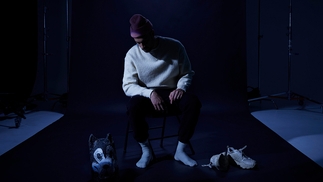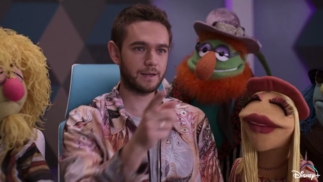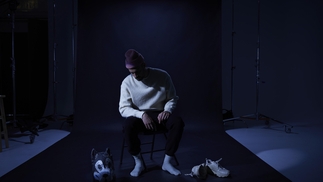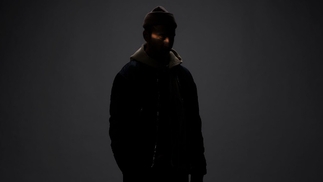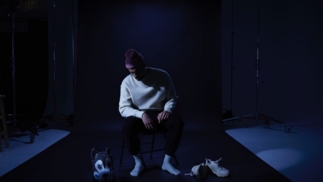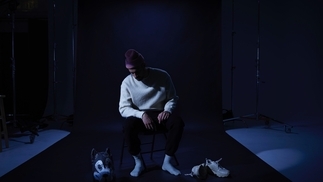FACE OFF: DJs IN MASKS
Why are masks so popular in dance music?
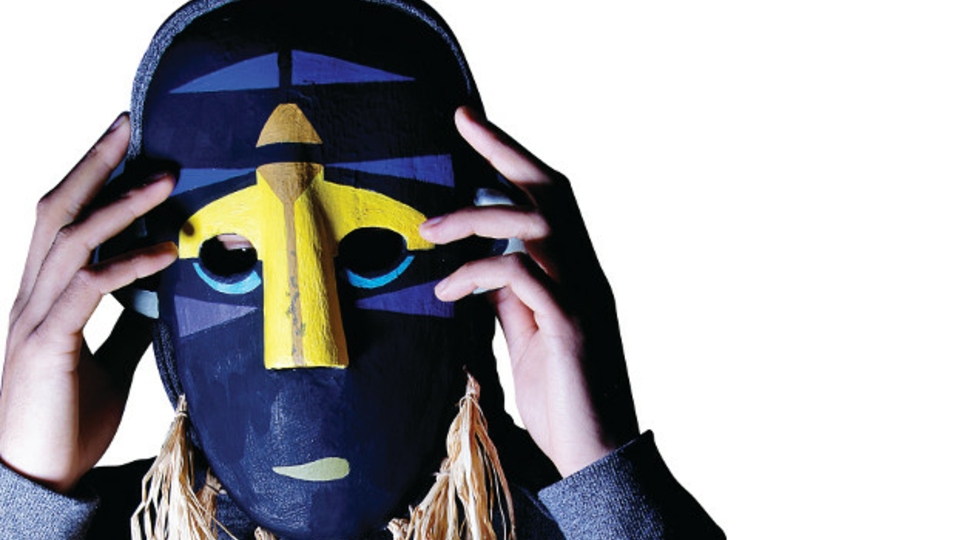
“All great things must first wear terrifying and monstrous masks, in order to inscribe themselves on the hearts of humanity.” FRIEDRICH NIETZSCHE, Beyond Good and Evil
When DJs step up onstage they're ready to give a performance. They're prepared to become someone else, put on a different face to present to the world. Not for nothing are selectors on a line-up referred to as acts. And the bigger the stage, the more important the booth, the more theatrical the act becomes.
In any given situation, the DJ is the talisman, the musical shaman, the instigator of the communal groove. While not exactly a clown, a jester or a fool, up there in the booth a DJ has the license to mess about and act as a focal point for the crowd — if they're that way inclined.
For some, it's almost like they adopt an alternate persona when they climb onstage. Bob Sinclar, for instance, manifests as an international playboy, while Fatboy Slim is Norman Cook's extrovert persona, when in reality he's modest and self-effacing offstage. Other DJs are pretty much the same onstage or off, while for a select few wearing a mask helps them transform from 'normal' music lover to charismatic party-starter. More and more these days, it seems that if you want to get ahead, get a mask.
INFLUENCE
We all wear masks metaphorically in everyday life but in the sphere of dance music those masks have become literal. And not only have masks — in a wide array of weird and wonderful shapes — become a regular feature on the dance circuit, they've infiltrated every area of electronica. Stadium megastars wear them, leftfield weirdos don them, techno freakazoids conceal their true identity behind them. It's a phenomenon evident in the commercial world of EDM and in the deepest depths of the underground. Not only is the act of assuming another identity behind a mask at its zenith right now, it's becoming de rigueur. The done thing. Ever more popular.
Make no mistake, masks in pop are nothing new. There's a tradition dating back through the 1970s, from David Bowie's infamous greasepaint lightning strike across his face denoting his 'Aladdin Sane' persona, through post-punk freaks the Residents' wacky eyeball heads, the silliness of KISS, up to the comical menace of metal bands like Slipknot and Gwar (they went even further and donned whole outfits).
In hip-hop, there's DOOM's super-villain metal visage, or Eminem's phase of wearing a frightening Jason Voorhees hockey mask. But look at dance music, and there's more masks than anywhere else. Consider the list and the dizzying variety of styles and personalities it encapsulates: Deadmau5, SBTRKT, Claptone, Daft Punk, Bloody Beetroots, Jaguar Skills, DJs From Mars, Underground Resistance, Gunz For Hire, Redshape, Cazzette, Shit Robot, Knife Party, Dr Lektroluv, Funtcase, DJ Bl3nd, Mike Candys, Mr White... it goes on.
But why? Well, there's a whole host of reasons. Influence is certainly one of the greatest considerations. Without Daft Punk and their admittedly brilliant and appropriate retro-futuristic robot helmets, it's doubtful we'd have had Deadmau5, both paragons of huge success in the dance industry whilst donning a ridiculous visage, as well as possibly a law of diminishing returns. In their case, the gimmick worked. But while the former two have music with a lot of personality, for others wearing a mask has become a business model designed to generate interest while it hides a vacuum of charisma.
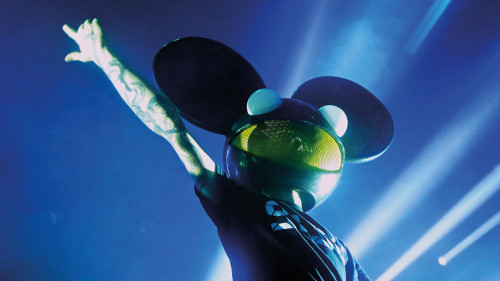
PERSONA
Another reason DJs and electronic music producers put masks on is that covering their faces allows them to become someone else. Not necessarily to hide, but instead to present an image of how they would like to be seen by the world. These guys could be mumbling pixel-tanned bedroom producers to whom stepping out in front of an audience is terrifying in their natural form. But put on a freaky totemic mask, and these would-be Clark Kents become super heroes to their fans and sometimes in their own minds too. Wearing this kind of mask is a cranked-up version of what famous psychologist Carl Jung called “the persona”. To Jung, the persona was the aspect of an individual's self that they chose to present to the world, an alter ego of how they want to be seen rather than what they are really like. In his 1953 published work Two Essays On Analytical Psychology, he described it as "a kind of mask, designed on the one hand to make a definite impression upon others, and on the other to conceal the true nature of the individual", and in The Relations between the Ego and the Unconscious he described it as "a compromise between the individual and society as to what a man should appear to be".
These masks can be wild and colourful, they can be sinister, they can denote a trickster or demonic presence, but mostly they distract from the individual, normally a nondescript male. Sometimes though, the mask comes to take on an unnatural life of its own, with the wearer becoming unnerved by the obsession that fans attach to the persona of the mask, rather than the person who puts it on. In a 2007 interview with DJ Mag, just before he become massive, Deadmau5 was interviewed for a cover feature, and even then, before becoming a stadium-sequestering name the mask filled him with a certain disquiet.
“[The mask is] not something that I can even control anymore. It gets a little out of hand, I feel like I'm gonna get booed when I don't wear it. It's really weird, I feel like, 'Oh God, why did I start doing this?' But in every interview it's 'Are you going to wear the mouse head? Why the mouse head?' Mouse head mouse head! I do music too!” Indeed there's the fear that artists can become the literal manifestation of the mask they wear, that the persona can takeover the real self and the mask become its wearer. Carl Jung saw this merging as a worrying warping of the personality. “The danger is that [people] become identical with their personas — the professor with his textbook, the tenor with his voice.”
EMBLEMS
Beyond the psychological reasons behind donning a mask, and the implications, there are further more practical applications. Masks are totems, describing the music, giving the sound a physical manifestation. They're emblematic of the wearer's style of electronic production. Daft Punk for instance suggest the disco past and gleaming machine future duality of their music in the 1970s sci-fi robot helmets they put on. Bloody Beetroots' stocking cap scowl is like an anarchist super villain, reflective of the punky lawless energy therein, while SBTRKT puts on a specially designed African tribal mask to channel the ghostly apparitions and ghouls invoked by his ectoplasm-soaked tunes.
“Tribal masks, that whole culture of experiencing ancestors, when they're worn in a specific dance or ritual, they take on the persona of someone else. For SBTRKT that made total sense,” SBTRKT told DJ Mag in 2011.
Masks also offer a way of disassociating the music from the maker, allowing the tunes to do the talking. Some use the mask to completely conceal their identity, like techno specialist Redshape, or to maintain a veil of secrecy, keeping their underground credentials intact. In a world of “faceless techno bollocks”, some stick a mask on to keep themselves anonymous, to avoid the whole media circus of having to discuss their work in public. It was certainly a motivating factor in the case of SBTRKT, who claimed “Music is very much this world of making up what you're doing, this make-believe environment to create otherworldly sounds and otherworldly music, and having to be your own person, projecting your own life story onto it, doesn't necessarily connect for me”.
Our interviewees for this feature all wear masks to convey wildly different messages. For Euro popster Mike Candys, the somewhat facile smiley head he wears on his bonce signals that he's going to be spinning somewhat facile smiley Euro-pop. Scary hardstyle monster Angerfist's mask is emblematic of the cacophony of chaos he is about to unleash. Jaguar Skills's stealth ninja guise sits sweetly with his expert DJ skillz on the ones 'n' twos, while Claptone's golden Venetian Carnevale mask is suggestive of decadence and elegance at once, with just an edge of darkness...
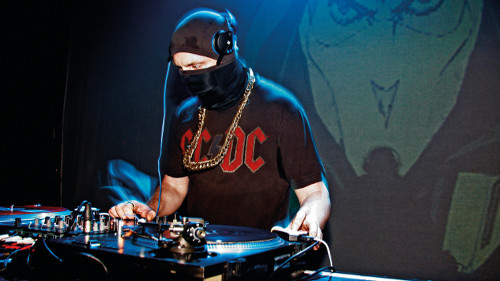
JAGUAR SKILLS
The ninja decknician speaks
Why did you decide to mask up for your gigs?
“Because I got my name from a Ninja sample, I thought 'Let's have a logo that's a ninja'. That was it. So I just drew this ninja with a pair of headphones on as my logo. I was DJing for maybe about eight years without this fucking mask on, and I got this job for Radio 1. I'd been living in Spain and doing loads of house and disco stuff with Mark Knight, but then when I came back to England I didn't have a gig. Nobody knew me, I was doing stuff with Pacha in Spain, so I managed to get in on this mix mash-up scene that had just kicked off. I did this one thing that Mark Ronson liked, 'New York Shit' by Busta Rhymes with loads of different beats on, and then Radio 1 played it. I was just there at the right time, right place, and I was quite good at Ableton when it first came out.”
You started wearing a mask for the first time for a BBC Radio 1Xtra gig, didn't you?
“Yeah, they asked me to DJ and said, 'And you're gonna wear your mask, right? Your logo, the ninja, you look like that, don't you?' So I just found a mask and I wore it, and then it just got to a point where I was getting loads of gigs like it. I got a better mask, and then a better one, and now after seven or eight years I can't actually DJ without it! It's the weirdest thing.”
How is it different DJing in a mask?
“When I used to DJ, I used to look down all the time cos I was a turntablist guy and I never used to vibe with the crowd. Now it's really exciting for me to look at the crowd, and without the mask I can't look at them. But with this mask, I can look straight at the guy who's going crazy and he doesn't feel intimidated. It's not a thing. It's almost like looking at a fire or something — you can't keep your eye off a guy in a mask. It's weird. And it's quite weird as well going to a gig when everyone's waiting for Jag Skills, and I'm in the crowd watching and I can hear what people around me think of me. Cos no-one ever knows it’s me. It’s great that I can take my mask off and disappear — and no-one ever knows.”
Can you act differently as a DJ with a mask on?
“Yes, it almost gives you a complete excuse to act however you want. You get more into the music and you don’t really give a shit what your face looks like if they’re going to take a photo of you, or you don’t care what your hair looks like. Imagine going to a gig thinking about what your hair looks like — what a fucking nightmare!”
CLAPTONE
The mysterious deep house entity gives us an insight
Why do you wear a mask?
“We all wear masks. When people interact with each other they play different roles. You could also describe these roles as masks, masks we're all wearing. But these masks do not just translate what seems to be inside of us. They are part of our identity. You can't take these masks off, because there is no 'real me' behind the mask.”
Do you think the anonymity of wearing a mask suits the world of dance music with its emphasis on the music, paradoxically, rather than the image?
“There is not a lot of dance music sold in capitalistic western societies without the halo of an omnipresent image overshadowing the pure sonic message these days. The rockist pose took dance music by storm in the '90s and are we not all dancing towards the DJ today? Claptone is neither an anonymous [DJ] who hides behind a mask nor is he a one-man entertainment park. The single purpose of being Claptone is to touch people. Form and function melt when Claptone plays his sets, bright and dark, angry and warm-hearted, happy and sad, calm and outrageous. If you open your heart you can feel it: Claptone deals in emotions.”
Why specifically the Venetian-style Carnival mask? There's something undeniably creepy about them...
“I did not chose the mask. The mask chose me and as I lost memory about how it all began let me quote a keen observer here: 'In a now long-forgotten world, many generations ago, a bird-like shape emerged from wooded darkness, floating and fluttering, drifting and dreaming. Backlit by a bright glow of iridescent light, the undecipherable form wore a dazzling golden mask. Its long beak swooped down like an inverted horn and since then, people have referred to the mythical being simply as Claptone."
Do you feel like you become someone else when you wear the mask? Do they give you confidence?
“I have answered this already, but I wanna let you in on a secret: I have something to hide and I pity those who have not. If you listen very closely to the sound of Claptone you might get a glimpse into my whole universe full of secrets. I love secrets. One may allow me a piece of advice: let those secrets thrill you, allow them to fascinate you and enjoy the excitement they create within you, but accept them as what they are: secrets!”
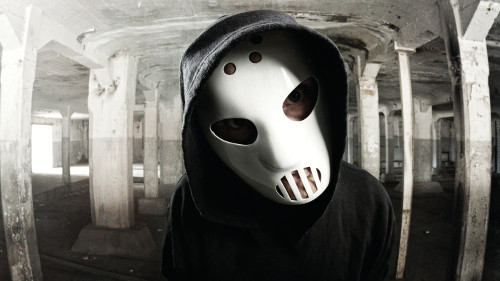
ANGERFIST
The gabba/hardstyle psycho gives us a glimpse behind the hockey mask...
Why do you wear a mask?
“Because it looks so much more awesome then just plain old me onstage.”
Is it a way of changing your image, making yourself more intimidating? Does it reflect the darkness of your music?
“This was part of its original intention, yes. Back then I wanted something that looked cool and somewhat dangerous. I also was really just a studio mouse and not (yet) a stage animal, so this was the perfect way for me to go onstage without any issues. A way to still play the music I love in front of a crowd, but in the comfort of anonymity.
“Nowadays I don't have this anymore and enjoy performing just as much as making music, while the mask has become infamous amongst the fans. Looking back, it is probably one of the best decisions I ever made.”
Is it also a barrier between you and the crowd?
“I'm not hating that, indeed. It also allows me to walk around a party after my set and get drunk while most people don't recognise me. That worked out great.”
Why do you think so many people wear masks in dance music now?
“I think many of them think it's the golden key to success. Although people love a masked figure onstage, they should remember it still starts with music that makes people dance.”
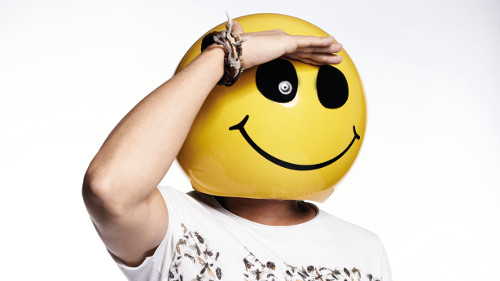
MIKE CANDYS
The smiley-faced pop dance man reveals all
Why did you decide to wear a mask when you DJ? And why this particular one?
“I was a producer and remixer long before I started performing as a DJ. When I got the first requests from clubs to come and play there, I wanted my show to be different from other DJs, cos I saw myself more as the musician than the DJ. I tried to work with keyboards and samplers but this was too complicated to organise. So I wanted at least to have something visual people will remember (in addition to my music) after they saw my show. That's when I came up with the idea of wearing a mask.
“I built several prototypes of dragons, aliens and animals but nothing really looked cool and suited me and my music. Then I watched an old video I created for one of my remixes and in that video the DJ and the crowd are smileys. That was it. I checked on the internet where to buy a smiley-mask, but actually there's nothing to find. So I created and built my mask myself with a jigsaw and a lot of glue.”
Is it hard to see out of?
“It's pretty hard cos I only see very few of the things around me and I don't hear anything (I've got in-ear monitoring). But I got used to it. It helps my performance cos the moment when I put on the mask, I kind of change my personality. I see people's reaction to the mask and it's a lot of fun to interact with my fans then.”
What is the psychology of it?
“The smiling face is something positive. Everybody who sees it automatically gets a positive feeling (that's even proven by brain-scientists). The psychological effect for me is that I know I've got a very unique element to use in my show. That makes it even more exciting and more fun for me to perform.”
“Whenever I put on the mask, most of the people in a club or at a festival like it a lot, and lots of them cheer, take pictures and videos. Of course, there's always somebody who thinks that's silly, but I never had a really bad reaction from somebody in the audience. The worst thing that happened was when somebody tried to steal the mask. That already happened twice, but fortunately they couldn't manage to get the mask out of the club.”
Words: Ben Murphy & Carl Loben
